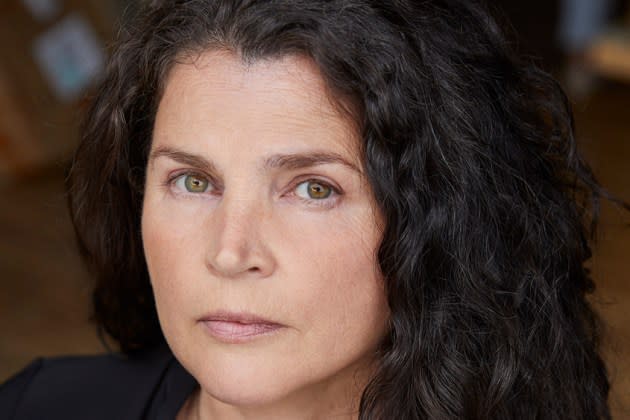CAA and Disney Challenge Julia Ormond’s Claim They Enabled Harvey Weinstein in Alleged Assault
- Oops!Something went wrong.Please try again later.

CAA and Disney are fighting back against Julia Ormond’s claim that they acted as enablers for Harvey Weinstein and failed to protect her from being sexually assaulted.
Ormond rose to fame in the mid-90s, appearing in “Legends of the Fall” and “Sabrina.” She has alleged that Weinstein lured her to a business meeting in December 1995, then sexually assaulted her at her apartment in New York.
More from Variety
Nissa Diederich, Head of Production for 20th Television, to Depart After Nearly 25 Years
Michelle Obama Hits CAA for Meetings After Impressive 'Leave the World Behind' Netflix Debut
She filed suit in October, accusing Disney, which then owned Weinstein’s company, and CAA, her agency at the time, of failing to warn her of Weinstein’s history of sexual assault because he was “too important, too powerful and made them too much money.”
The companies filed motions to dismiss Ormond’s lawsuit on Tuesday, arguing they did not know about Weinstein’s sexual misconduct before the meeting.
“CAA thus had no reason to believe there was any risk to Plaintiff in arranging a business dinner with Weinstein,” the company argued. “In suing CAA, Plaintiff places blame on the wrong defendant.”
Ormond’s lawsuit alleges that Weinstein’s pattern of misconduct was already known in the industry, specifically at CAA, by the time of her meeting. The suit references a 2017 New York Times story, “Weinstein’s Complicity Machine,” which reported that the actor Mia Kirshner rejected an advance from Weinstein at a hotel room in 1994 and told her CAA agents about it.
But in its motion to dismiss, CAA argues that Kirshner’s experience was not analogous to Ormond’s claim of sexual assault.
“Neither the Complaint nor the underlying news article asserts that Weinstein engaged in conduct other than verbally propositioning Kirshner, and neither source alleges that Kirshner’s interaction with Weinstein involved any physical contact, much less sexual assault,” CAA’s lawyers argued.
The agency also argues there is no evidence Kirshner’s agents told Ormond’s agents, or anyone else at CAA, about the 1994 incident.
Disney bought Weinstein’s company, Miramax, in 1993. Ormond also alleges that Weinstein’s brother and other Miramax employees knew of Weinstein’s misconduct early on.
In response, Disney argues that Miramax remained a separate corporate entity and that Disney did not have a responsibility to supervise Weinstein’s off-hours behavior.
“If courts imposed a new duty on employers to supervise everything employees do in their private lives that has any connection to their careers, there could be no limit to liability for employers and no end to surveillance of employees,” Disney’s lawyers argued.
Ormond has also alleged that she told her agents, Bryan Lourd and Kevin Huvane, about the assault a few weeks after it occurred. She argues that they dissuaded her from reporting the assault, warning that it could hurt her career. She also alleges that the agency quickly lost interest in her and that her job opportunities dried up over the next few years.
In a footnote to its motion, CAA denied those allegations, saying the agency served as a “tireless advocate” for Ormond until she departed to sign with Michael Ovitz’s management company.
“Plaintiff never told Bryan Lourd, Kevin Huvane, or CAA about the assault until she approached the agency with a demand letter from her lawyers earlier this year,” the company’s lawyers argued.
Weinstein, 71, who is serving consecutive sentences of 23 years and 16 years for raping other women, has denied Ormond’s allegations.
Best of Variety
Sign up for Variety’s Newsletter. For the latest news, follow us on Facebook, Twitter, and Instagram.
